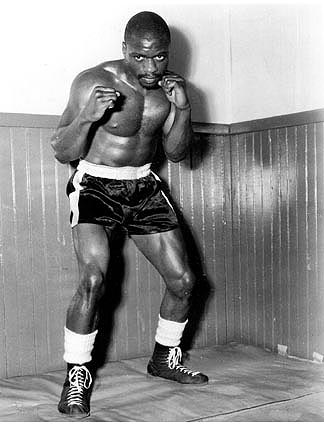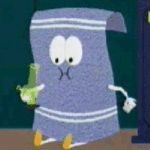It’s pretty amazing what a great protest song Bob Dylan could still write after he had pretty much abandoned the form years before. No wonder Joan Baez was so pissed.
My first year at Northwestern, which was 1984, I took a law seminar. The professor told us about how many Black men were routinely tossed in jail for crimes they had obviously not committed. As proof he offered, the case of boxer Ruben “Hurricane” Carter, an innocent man tossed into jail for murder whose cause had been championed by Bob Dylan. By the professor’s manner it was my assumption that he’d long ago been released, but he actually was still in jail at the time.
In 1992, I read an article in Sport Illustrated about the case that pretty much made me cry. It told the story about how a group of unconventional Canadians adopted an illiterate New York Street kid, Lesra Martin. They taught him to read and encouraged him to read books about his race and culture. At a flea market this kid purchased his very first book, Ruben Carter’s autobiography the 16th Round. Inspired by the book, Lesra writes a letter to Carter in jail. A bitter Carter has refused to answer all correspondence for years, but he is so touched with Lesra’s story that the two meet and the Canadians work for years to secure Carter’s release from prison. His innocence seems to be completely obvious to anyone, but a complete racist, and his co-defendant John Artis, even refused an offer of clemency had he admitted his and Carter’s guilt. Carter is finally released from prison and not only moves to Canada, but marries one of the Canadians. Martin, who had been illiterate goes on to graduate from law school. It was simply the most amazing, inspiring story that I had ever read and touched me deeply. I immediately said to myself, someone needs to make this into a movie.
It was made into a movie by Norman Jewison. Jewison of course is the director that passionately wanted to helm a movie about Malcom X, and found himself up against Spike Lee, who also wanted to direct Malcolm’s story. Lee was passionate that the story of Malcom X needed to be filmed by a Black man, one of Spike’s arguments that really gave me pause. I saw his point, but it was really something that I didn’t want to believe artistically. Why couldn’t a white director like Jewison make a good movie about Malcolm X? Jewison, then moved on and made Hurricane about Carter’s case, which starred Denzel Washington, the same man who had starred as Malcolm in Lee’s movie. I think there was talk for a while of Denzel playing Jackie Robinson, too, but although I often joke about Washington’s omni-presence (almost like in the 50’s the only Black man America would allow on the screen was Sidney Poitier), but hell, if I were making a movie about an important figure in African-American history I’d try to get Denzel, too.
Both movies show Washington as a proud Black man stuck in jail, and the argument is made that Carter was in jail because of his strong pride and willingness to speak out on racial injustices. The only problem is that upon release of the movie, people started pointing out that Ruben Carter wasn’t exactly Malcolm X. I’ve since read a bunch of really convincing articles that argue that Carter wasn’t really a contender for the Middleweight title of the world, that the fight depicted in the movie showing Carter screwed out of a victory for a fight he dominated was pretty much fiction, that he is a rapt story teller, who has told a bunch of different stories, that he was violent his entire life, that he had never really spoken out about civil rights, that he fell out with the Canadians and divorced the woman he married, and most damaging of all that when he was out on parole awaiting his second trial, that was boosted forth by the Dylan song, that he assaulted a woman, who was one of his supporters. Now, I have absolutely no idea what to think.
Talented writers can use their skill to make you believe whatever they want, and even well educated critical thinkers can fall prey to it. I often read something and feel completely inspired about an issue and then read something else and am embarrassed for my original feelings. That original Sports Illustrated article made me feel that Carter was a caged saint. The web pages I’ve read make a really convincing argument that he’s just a violent con artist. This thing is now more muddled in my mind than the Kennedy assassination. When you grow up I guess you have to eventually realize that no one is a saint and no one is the devil. There are probably tons of men imprisoned unfairly because of their race, I’m just not sure whether Carter was one of them or not. In the end, like Chris Rock said if you can afford Johnny Cochran, you’re going home.
Dylan, from what I can gather, didn’t exactly go out and do a Woodward and Bernstein when he wrote Hurricane, he basically met Carter and told Carter’s side of the story. Did he have any responsibility to his audience to delve into the case more deeply than he did, before accusing a bunch of policemen of institutionalized racism? It would have been nice I guess. What happens to us all when brilliant songwriters aren’t preaching peace like John Lennon and instead start inspiring people to blindly follow the Government into a war with Iraq. Hurricane, remains a brilliant protest song, but damn don’t let a great song or great movie make up your mind for you, use it as a stepping stone to do your research before making up your mind. You might agree with the start of your inspiration, you might be swayed totally to the other side, or you might end up like me completely baffled about who killed those people in Paterson, New Jersey.








If he didn’t do it then there has been a huge miscarriage of justice. This is so regardless of whether he is a bad man. One deserves to be punished for what one has done – that’s fair labelling.
Even if he has done it whilst morally he may deserve to be locked up, legally speaking that would be unjust. There is reasonable doubt as to whether he did the crime. Reasonable doubt = no conviction.